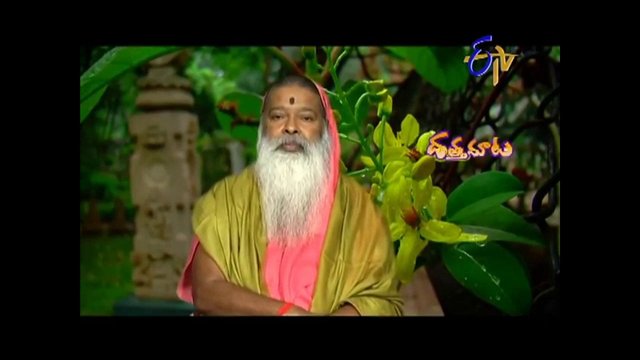
Agre vahniḥ pṛṣṭhe bhānuḥ rātrau cubuka samarpita jānuḥ |
Karatala bhikṣas-tarutala vāsaḥ tadapi na muñcaty-āśā pāśaḥ || 16 ||
Meaning - Even that person, who sleeps beneath a tree at night curling up his body to protect himself from biting cold; who builds a fire to keep himself warm even as the morning sun rises behind him; who accepts with his palms, the alms that have been given to him, is not spared from these noose called desires (āśā pāśa).
A previous stanza explained about the pretentious saints (sanyasis). This stanza explains about the real sanyasis. While the case of pretentious sanyasis who externally wear ochre robes and deceive people for the purpose of livelihood is somewhat understandable, isn’t it surprising to note that true sanyasis who have achieved detachment, who have distanced themselves from these worldly bondages and who wear ochre robes are not spared either by this noose called desires?
This stanza seeks to highlight the power wielded by desires!
A renunciate, who maintains no place of residence, finds shelter under some tree. During the early morning hours of winter, he lights a fire to keep himself warm while the Sun rises behind him. Unlike a householder, a renunciate (sanyasi) has to go from house to house begging for alms during the day. It is not that he can collect the food offered from all houses and eat them at one go. He is also not supposed to sit and enjoy the complete meal in one house. He is to approach every house and call out, “Bhavati bhikshaam dehi”. The lady of the house will then come and offer to him one fistful of food. He should collect the same in his palms and eat it then and there, before proceeding to the next house. This method is known as karatala bhiksha. Even under this method, there is a restriction on the number of houses that the sanyasi can visit on any given day, for example 5 houses. The idea behind this practice is that he should not consume belly-full food. This is how a true sanyasi should live.
From this we can understand that Shankara Bhagawad-pādāchārya practised this discipline of begging for alms. Even Swamiji practiced Madhukari during his childhood days. All this is contained in His life history. This is one of the toughest disciplines that one can ever follow.
This stanza emphasizes that desires do not leave even that person who is following these hardest disciplines. By selecting this example, Shankaracharya Swami is stressing upon the might exhibited by desires.
Our Puranas contain many instances of people, who after giving up all forms of luxuries and after undertaking the toughest disciplines are blessed with a vision (darshan) of God , and who then waste this boon by seeking materialistic benefits. When these instances are scrutinized, one can realize the might exhibited by these desires and as to how it holds a person completely in its sway.
It is said that indriyas (senses) can collectively pull down even the greatest scholar. Some people manage to bring some senses under control, but then unable to control the mind they fall prey again to desires. Even great personalities such as Vishwamitra could not escape from such fall.
Only relentless recitation of divine names can save a person from this noose called desires!
JGD! Om Namo Bhagavathe Vasudevaya🙏🏻🌺🌸🌺
Downvoting a post can decrease pending rewards and make it less visible. Common reasons:
Submit
JGDH Remembering HH’s SGS most Sacred biography in His childhood when he went to several houses, after knocking every house door He used to scream “Bhavati bhikshaam dehi!” Then all the collected food was kept in a pot, then back home (shiva temple?) He had to give it to His sisters and even beggars and only after all had eaten he had a couple of small portions to eat. Such was the greatest penance of my Lord. And that is why I offer Him the food I prepare : to my Lord Child Satyanarayana, it doesn’t matter if I can’t fly back in time, I always remember His hardships and try to serve Him somehow from present time to His childhood, some 66 years back 🙏🏽
Downvoting a post can decrease pending rewards and make it less visible. Common reasons:
Submit
Om Govindaya Namaha !! Om Vishnave Namaha!! Om Madhusudanaya Namaha !!!
Downvoting a post can decrease pending rewards and make it less visible. Common reasons:
Submit
Om Namo Narayanaya 🙏🏻
Downvoting a post can decrease pending rewards and make it less visible. Common reasons:
Submit
JGD Om namo Hanumate namah
Downvoting a post can decrease pending rewards and make it less visible. Common reasons:
Submit
Jgdh Appaji!!! Renunciation and control of senses, food intake, and the living of a real renunciation is so beautifully told, Thank You Appaji, lots to learn!!!!🙏
Downvoting a post can decrease pending rewards and make it less visible. Common reasons:
Submit